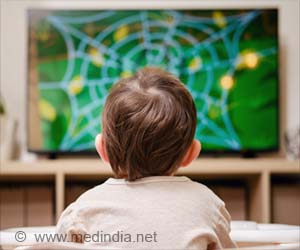- Exposing newborns to screens and digital gadgets can lead to cognitive decline
- It was observed that once the child is 9 years old and has a history of screen-time exposure as a baby, they may have lower academic performance
- This is due to being exposed to two dimensions and having difficulty correlating with the three-dimensional world
Associations Between Infant Screen Use, Electroencephalography Markers, and Cognitive Outcomes
Go to source).
Executive Functioning Skills
Executive functioning skills are brain processes that "allow us to plan, focus attention, remember instructions, and successfully juggle several tasks," according to the Harvard University Center on the Developing Child. These executive functioning skills are critical for higher-level cognition such as emotional management, learning, academic accomplishment, and mental health. They have an impact on our social, intellectual, and professional success, as well as how we care for ourselves, according to Dr. Erika Chiappini, assistant professor of psychiatry and behavioral sciences at the Johns Hopkins University School of Medicine in Baltimore (2✔ ✔Trusted SourceExecutive Function & Self-Regulation
Go to source).
As per Dr. Joyce Harrison, associate professor of psychiatry and behavioral sciences at Johns Hopkins University School of Medicine, the findings support recommendations from the American Academy of Pediatrics, which discourages all screen time before the age of 18 months, except video chatting. Harrison was not a participant in the study.
Growing Up in Singapore Towards Healthy Outcomes, or GUSTO, was a research project that examined women from all socioeconomic backgrounds throughout their first trimester of pregnancy. The study included 437 children who underwent electroencephalography (EEG) scans, which are used to examine the neural circuits of cognitive functions in the brain, at the ages of 1, 18 months, and 9 years.
It was noted that parents recorded their child's screen time, and researchers discovered a relationship between screen time in infancy and attention and executive function at 9 years old.
However, more research is needed to identify whether screen time caused executive function deficits or if other characteristics in the child's environment predispose them to both more screen time and poorer executive functioning, according to the study.
What do the Children Need
One of the major issues with screen use in a learning-rich period like infancy is that young children aren't learning much from them."There is no replacement for adult engagement, modeling, and education," Harrison added.
Babies struggle to grasp the information provided in two dimensions, such as on screens and have difficulty distinguishing fantasy from reality, according to Chiappini.
"Babies and children are also social learners who gain much from back-and-forth connection with others (adults and children), which is difficult to achieve with screens," Chiappini explained via email.
She noted that when it comes to emotional regulation, infants and toddlers can learn from their carers who model self-control or assist in labeling emotions and acceptable responses.
Instead of inappropriate behaviors such as hitting, Harrison suggests giving young children options for what they can do when they are angry, such as taking a break or breathing deeply.
Dr. Jenny Radesky, a developmental-behavioral pediatrician and associate professor of pediatrics at Michigan Medicine's C.S. Mott Children's Hospital, suggests using color zones to discuss feelings with preschool-age children. Radesky was not a participant in the study.
Calm and content can be represented by green, anxious or agitated by yellow, and upset or angry by red, with visuals or images of faces to help kids match what they're experiencing with their color zone. Adults can encourage it by talking about their feelings in terms of colors in front of their children, Radesky noted in a recent CNN story.
She noted that parents and children can walk through the zones together and come up with calming solutions for each zone.
Harrison believes that providing structured engagement where a kid may work through solving problems to the extent that they can at their developmental stage—rather than having problems addressed for them—helps strengthen those executive function skills.
How to Get Things Done Without Using a Computer
However, there are instances when parents just need to do the laundry or attend a work meeting, and screens can serve as an excellent diversion.Harrison noted that it is probably still preferable to avoid screen time for very young children.
Instead, she suggests involving the youngster in household activities. "Give your kid some clothing to fold alongside you while you're trying to get laundry done," Harrison said via email.
Save your screen time for older preschoolers to utilize intelligently, she advises. When your tank is empty, some things can help teach emotional regulation. Finding media focused on directly communicating emotions to children, such as Daniel Tiger or Elmo Belly Breathing, can be like a meditation rather than a diversion, says Radesky And, according to Chiappini, you may improve screen time by engaging your child while they are watching. Inquire, for example, "How is that character feeling?" "What could they do to assist their friend?" she asked.
Raising children is a difficult and sometimes stressful endeavor, and no parent can offer their child everything they want all of the time, according to Radesky.
More research is urgently needed to differentiate the direct link between newborn screen use and executive function impairments from family characteristics that predispose to early screen use.
References:
- Associations Between Infant Screen Use, Electroencephalography Markers, and Cognitive Outcomes - (https://jamanetwork.com/journals/jamapediatrics/fullarticle/2800776)
- Executive Function & Self-Regulation - (https://developingchild.harvard.edu/science/key-concepts/executive-function/)
Source-Medindia










